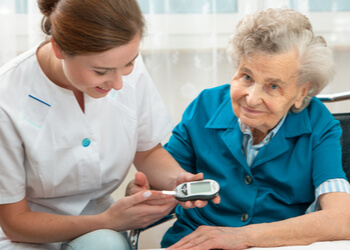What Is Diabetes?
Diabetes is a condition whereby your body battles to convert glucose into energy. This can lead to a condition called hyperglycaemia, where you have too much sugar in your blood. In healthy patients, blood sugar is controlled by a hormone called insulin, which is responsible for converting energy into glucose. When your body can’t use insulin, or when your pancreas can’t make enough insulin, you may be diagnosed with diabetes.
What Are The Different Types Of Diabetes?
There are four types of diabetes:
Type I diabetes
People who have type I diabetes have a condition where their immune system breaks down the cells that create insulin in the pancreas
Type II diabetes
Type II diabetes occurs when the body cannot produce enough insulin or when the cells do not respond appropriately to insulin.
Gestational diabetes
Gestational diabetes is diagnosed when a woman has elevated blood sugar levels during pregnancy. In most cases it self resolves after the birth of the baby, but if it is not treated can result in severe complications for the mother and the baby.
Pre-diabetes
Pre-diabetes occurs when you have elevated blood sugar levels, but they are not yet high enough for a diabetes diagnosis.
How Do You Know If You Have Diabetes?
The most accurate way to get a diabetes diagnosis is to consult with your healthcare provider or general practitioner and have tests done. In addition, you may experience symptoms such as 
- Excessive hunger or thirst
- Lethargy and feeling constantly tired
- Unexplained weight loss or gain
- Slow-healing wounds
- Skin infections or itchy skin
- Blurred vision
Many people may have diabetes but not experience any of the symptoms, or they may confuse the symptoms with something else. Pay attention to changes in your body and consult with your general practitioner if you do notice symptoms starting to develop.
What Are The Causes Of Type Ii Diabetes?
Because type II diabetes is acquired and you are not born with it, it is classified as a lifestyle disease. Your risk of developing type II diabetes may be elevated if you
- Have a family history of diabetes
- Are physically inactive
- Follow a poor diet
- Are overweight or obese
How Is Diabetes Diagnosed?
If your healthcare practitioner thinks you may have diabetes, he or she will conduct a blood glucose test to check your sugar level. The different types of tests ordered may be
- A fasting glucose test, which will be done after not eating for eight hours
- A random blood glucose test can be done without fasting
- An oral glucose tolerance test can be done after ingesting a sugary drink after fasting and then assessing the results after an hour or two
- Pregnant women are tested at every antenatal visit, for signs of gestational diabetes. This is generally tested for in a urine sample.
Living With Diabetes
Making healthy lifestyle changes can help you to manage diabetes symptoms and live a comfortable and full life. This means
- Following a healthy and balanced diet that is low in processed sugar
- Losing weight
- Getting physically active
- Not smoking and cutting back on alcohol consumption
- Monitoring your blood sugar levels
- Taking any prescribed medication as directed by your doctor
- Attending your checkups and doctor’s appointments is very important in managing diabetes. Make sure that you do not deviate from your treatment plan. Make sure you follow the recommended lifestyle changes too. While taking medication is one thing, managing your lifestyle to complement it is a totally different matter, and following an unhealthy lifestyle counteracts the effects of medication.
The Importance Of Treating Diabetes
When diabetes is unmanaged it can result in unpredictable outcomes and worsening diabetes symptoms. In addition, unmanaged diabetes may lead to
- Kidney and heart disease
- Stroke
- Problems with vision
- Foot problems
- Nerve problems
So, How Do You Know If You Have Diabetes?
If you check off some of the risk factors listed above and are also experiencing diabetes symptoms, it is quite possible that you could be diabetic or pre-diabetic and you should be tested by your doctor. If you do not have a medical scheduled, it is a good idea to have your blood sugar checked once or twice a year so that you can address any changes that might happen.
If you’re still not convinced and have more questions about how do you know if you have diabetes, it’s always best to speak to a professional. Please contact us for a convenient appointment: (02) 9884 9300.





